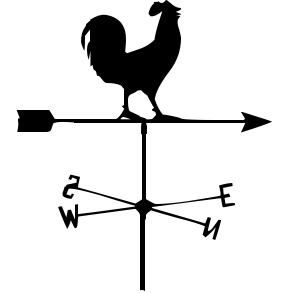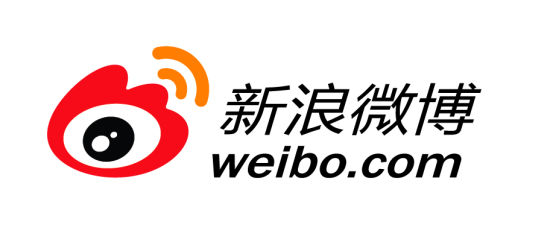 After reporting just yesterday that first-phase trials had wrapped up in 6 cities for TD-LTE, the 4G technology being developed by China Mobile (HKEx: 941; NYSE: CHL) (Chinese article), domestic media are reporting today that those same trials weren’t quite as clean as the first reports indicated, spotlighting the inevitable delays this technology will face in getting to market. China Mobile has been trialing TD-LTE on an expanded basis in 6 major cities since this spring, with domestic firms Huawei, ZTE (HKEx: 763; Shenzhen: 000063) and Datang, and global players Ericsson (Stockholm: ERICb), Nokia Siemens and Alcatel Lucent (Paris: ALU), all seeking to showcase their technology in hopes of winning big future contracts when a national commercial network is built. Now it seems that two of the smaller players in the trials, Samsung (Seoul: 005930) and a company I’ve never heard of called New Postcom, have fallen behind in the trials by failing to complete their work for technical reasons. (English article; Chinese article) Frankly speaking, this particular delay looks rather small and insignificant, as neither Samsung nor New Postcom are major players in this area and their failure to deliver technology on time would probably have minimal impact on the building of new networks. But what these delays do highlight is the fact that TD-LTE is a completely new technology, and it’s probably only a matter of time before we see more significant big problems coming from the likes of Huawei and Ericsson as their trials become more advanced. People who follow the industry will recall that TD-LTE’s 3G predecessor, TD-SCDMA, was looking fine in its early trial stages until numerous issues started emerging later on, including all kinds of technological problems that continue to haunt China Mobile’s commercial 3G network to this day. TD-LTE could see less problems, since it’s a follow-on to TD-SCDMA, which was completely new, and it’s also closer technologically to other more globally accepted 4G standards. Still, such technological glitches are almost inevitable, and this first round of problems, while they appear small, are a reminder that more significant problems are almost guaranteed to appear as the trials become more advanced. Such problems will almost inevitably push back the timeline for a commercial rollout TD-LTE, making a service launch unlikely before before 2013, and perhaps more likely in 2014.
After reporting just yesterday that first-phase trials had wrapped up in 6 cities for TD-LTE, the 4G technology being developed by China Mobile (HKEx: 941; NYSE: CHL) (Chinese article), domestic media are reporting today that those same trials weren’t quite as clean as the first reports indicated, spotlighting the inevitable delays this technology will face in getting to market. China Mobile has been trialing TD-LTE on an expanded basis in 6 major cities since this spring, with domestic firms Huawei, ZTE (HKEx: 763; Shenzhen: 000063) and Datang, and global players Ericsson (Stockholm: ERICb), Nokia Siemens and Alcatel Lucent (Paris: ALU), all seeking to showcase their technology in hopes of winning big future contracts when a national commercial network is built. Now it seems that two of the smaller players in the trials, Samsung (Seoul: 005930) and a company I’ve never heard of called New Postcom, have fallen behind in the trials by failing to complete their work for technical reasons. (English article; Chinese article) Frankly speaking, this particular delay looks rather small and insignificant, as neither Samsung nor New Postcom are major players in this area and their failure to deliver technology on time would probably have minimal impact on the building of new networks. But what these delays do highlight is the fact that TD-LTE is a completely new technology, and it’s probably only a matter of time before we see more significant big problems coming from the likes of Huawei and Ericsson as their trials become more advanced. People who follow the industry will recall that TD-LTE’s 3G predecessor, TD-SCDMA, was looking fine in its early trial stages until numerous issues started emerging later on, including all kinds of technological problems that continue to haunt China Mobile’s commercial 3G network to this day. TD-LTE could see less problems, since it’s a follow-on to TD-SCDMA, which was completely new, and it’s also closer technologically to other more globally accepted 4G standards. Still, such technological glitches are almost inevitable, and this first round of problems, while they appear small, are a reminder that more significant problems are almost guaranteed to appear as the trials become more advanced. Such problems will almost inevitably push back the timeline for a commercial rollout TD-LTE, making a service launch unlikely before before 2013, and perhaps more likely in 2014.
Bottom line: Newly disclosed delays in China Mobile’s 4G trials are a sign of things to come, with more significant problems almost guaranteed to push any commercial launch to 2013 at earliest.
Related postings 相关文章:
◙ China Mobile Nears iPhone Deal, Continues 4G Press 中移动iPhone协议近尾声 加紧4G攻势
◙ China Mobile: Where’s the 3G iPhone? 中移动4G网络稳步推进 3G版iPhone或遇阻
◙ Telecoms Regulator Shifts Tone on 4G 电信监管者就4G牌照发放转变口风

 While leading Chinese PC maker Lenovo (HKEx: 992) focuses on its core computer business, its parent, Legend Holdings, seems intent on a strange diversification campaign in the run-up to its own IPO that could come in the next 3-4 years. That seems to be the message with the latest series of Chinese media reports that Legend sees long-term potential in both the agriculture (
While leading Chinese PC maker Lenovo (HKEx: 992) focuses on its core computer business, its parent, Legend Holdings, seems intent on a strange diversification campaign in the run-up to its own IPO that could come in the next 3-4 years. That seems to be the message with the latest series of Chinese media reports that Legend sees long-term potential in both the agriculture (
 A new flurry of reports about mislabeled products at some of Wal-Mart’s (NYSE: WMT) China stores would be almost comical if they weren’t true, spotlighting just how sensitive the issue of food safety and false advertising has become in the country. The latest media reports say some Wal-Mart store managers have been detained and more than a dozen stores temporarily closed in this new crisis. And the reason for all the brouhaha? Believe it or not, it’s all because someone discovered that some pork products were falsely labeled as “organic” when in fact they weren’t. (
A new flurry of reports about mislabeled products at some of Wal-Mart’s (NYSE: WMT) China stores would be almost comical if they weren’t true, spotlighting just how sensitive the issue of food safety and false advertising has become in the country. The latest media reports say some Wal-Mart store managers have been detained and more than a dozen stores temporarily closed in this new crisis. And the reason for all the brouhaha? Believe it or not, it’s all because someone discovered that some pork products were falsely labeled as “organic” when in fact they weren’t. ( There’s an interesting bit of news today that indicates relief may be in sight for some real estate companies, now suffering through the most sluggish property market since Beijing reintroduced private property ownership in the 1990s. But the latest move, which has seen the mid-sized city of Foshan roll back some of its most drastic real estate restrictions, probably reflects recent financial distress being felt by local governments rather than any desire by Beijing to help a real estate sector that looks more like a gambling casino than a true property market. According to a report in the China Daily, Foshan, a smaller city near Guangdong’s provincial capital Guangzhou, has eased restrictions rolled out last year under orders from Beijing that forbade local families from buying more than one home. It also eased selling restrictions, saying owners could sell their homes if they had owned them for 5 years or more. (
There’s an interesting bit of news today that indicates relief may be in sight for some real estate companies, now suffering through the most sluggish property market since Beijing reintroduced private property ownership in the 1990s. But the latest move, which has seen the mid-sized city of Foshan roll back some of its most drastic real estate restrictions, probably reflects recent financial distress being felt by local governments rather than any desire by Beijing to help a real estate sector that looks more like a gambling casino than a true property market. According to a report in the China Daily, Foshan, a smaller city near Guangdong’s provincial capital Guangzhou, has eased restrictions rolled out last year under orders from Beijing that forbade local families from buying more than one home. It also eased selling restrictions, saying owners could sell their homes if they had owned them for 5 years or more. ( After reporting just yesterday that first-phase trials had wrapped up in 6 cities for TD-LTE, the 4G technology being developed by China Mobile (HKEx: 941; NYSE: CHL) (
After reporting just yesterday that first-phase trials had wrapped up in 6 cities for TD-LTE, the 4G technology being developed by China Mobile (HKEx: 941; NYSE: CHL) ( It wouldn’t be a proper week if I didn’t write at least one commentary about Alibaba Group, which has been in the headlines nearly non-stop following the firing of Carol Bartz as the controversial CEO of Yahoo (Nasdaq: YHOO), which owns 40 percent of Alibaba. After initial reports said Alibaba founder Jack Ma was interested in both buying and running all of Yahoo (
It wouldn’t be a proper week if I didn’t write at least one commentary about Alibaba Group, which has been in the headlines nearly non-stop following the firing of Carol Bartz as the controversial CEO of Yahoo (Nasdaq: YHOO), which owns 40 percent of Alibaba. After initial reports said Alibaba founder Jack Ma was interested in both buying and running all of Yahoo ( I’m going to be a bit controversial today and make a bold suggestion that may seem obvious to some, namely that China should privatize its big 4 banks and let them resume their role as the state-owned policy lenders that they were for their first 50 years. The idea may sound extreme, but it’s exactly the approach that Beijing seems to be taking first by forcing its banks to issue billions of dollars worth of new shares to shore up their balance sheets last year, and now by announcing it will buy up even more of their stock to support their sagging shares. The banks’ majority shareholder, the central government-controlled Central Huijin, provided few specifics other than to say it has started buying up shares in the top 4 lenders, ICBC (HKEx: 1398; Shanghai: 601398), China Construction Bank (HKEx: 939; Shanghai: 6019399), Bank of China (HKEx: 1398; Shanghai: 601398) and Agricultural Bank of China (HKEx: 1288; Shanghai: 601288). (
I’m going to be a bit controversial today and make a bold suggestion that may seem obvious to some, namely that China should privatize its big 4 banks and let them resume their role as the state-owned policy lenders that they were for their first 50 years. The idea may sound extreme, but it’s exactly the approach that Beijing seems to be taking first by forcing its banks to issue billions of dollars worth of new shares to shore up their balance sheets last year, and now by announcing it will buy up even more of their stock to support their sagging shares. The banks’ majority shareholder, the central government-controlled Central Huijin, provided few specifics other than to say it has started buying up shares in the top 4 lenders, ICBC (HKEx: 1398; Shanghai: 601398), China Construction Bank (HKEx: 939; Shanghai: 6019399), Bank of China (HKEx: 1398; Shanghai: 601398) and Agricultural Bank of China (HKEx: 1288; Shanghai: 601288). ( After months of seeing its shares and prospects soar on non-stop hype about its phenomenally successful Weibo microblogging service, Sina (Nasdaq: SINA) is quickly learning that what goes up often comes down, and that great chances for growth also carry equally great risk. In a rare setback for Weibo, which boasts 200 million users, Hong Kong media reported over the weekend that China is considering new regulations for the unruly microblogging sector, which has become an increasingly fertile ground for fanning public discontent and spreading rumors by people often using fictitious names. (
After months of seeing its shares and prospects soar on non-stop hype about its phenomenally successful Weibo microblogging service, Sina (Nasdaq: SINA) is quickly learning that what goes up often comes down, and that great chances for growth also carry equally great risk. In a rare setback for Weibo, which boasts 200 million users, Hong Kong media reported over the weekend that China is considering new regulations for the unruly microblogging sector, which has become an increasingly fertile ground for fanning public discontent and spreading rumors by people often using fictitious names. ( The rapid slowdown in China’s auto sales has spread to the higher-end of the market, boding poorly for foreign names like Volkswagen’s (Frankfurt: VOWG) Audi brand and BMW (Frankfurt: BMW), which have invested heavily in the market on a bet that pricier cars were less vulnerable to industry downturns than more mainstream models. After two turbo-charged years of growth that saw Chinese car sales jump on strong buying incentives from Beijing, growth in the market has suddenly disappeared as incentives ended and the central government takes other tightening steps to cool the overheated economy. Makers of high-end products, such as luxury bags, homes and cars, love to say how their products are more immune to economic downturns than mainstream goods, even though the reality is that the suffering is usually just slightly delayed for these higher-end products. But even luxury cars appear to already be suffering in the current car slowdown, with foreign media reporting that sellers of premium brands are now offering discounts of 16-20 percent to maintain sales. Those discounts look similar to ones being offered by more mainstream brands such as VW and SAIC (Shanghai: 600104), as companies lower prices to try and offset cooling demand. I previously said that Chinese car makers with major foreign partners are best positioned to survive the current downturn, which is bad news for names like Chery and BYD (HKEx: 1211; Shenzhen: 002594), which lack such partners that have the resources to weather such slowdowns. Chery has received a setback on that front, with Japanese media reporting the company’s plan to produce Subaru-branded vehicles in a new joint venture with Fuji Heavy Industries (Tokyo: 7270) has been rejected by China’s state planner because the company’s major shareholder, Toyota (Tokyo: 7203), already has 2 joint ventures in China, the maximum allowed under Chinese law. (
The rapid slowdown in China’s auto sales has spread to the higher-end of the market, boding poorly for foreign names like Volkswagen’s (Frankfurt: VOWG) Audi brand and BMW (Frankfurt: BMW), which have invested heavily in the market on a bet that pricier cars were less vulnerable to industry downturns than more mainstream models. After two turbo-charged years of growth that saw Chinese car sales jump on strong buying incentives from Beijing, growth in the market has suddenly disappeared as incentives ended and the central government takes other tightening steps to cool the overheated economy. Makers of high-end products, such as luxury bags, homes and cars, love to say how their products are more immune to economic downturns than mainstream goods, even though the reality is that the suffering is usually just slightly delayed for these higher-end products. But even luxury cars appear to already be suffering in the current car slowdown, with foreign media reporting that sellers of premium brands are now offering discounts of 16-20 percent to maintain sales. Those discounts look similar to ones being offered by more mainstream brands such as VW and SAIC (Shanghai: 600104), as companies lower prices to try and offset cooling demand. I previously said that Chinese car makers with major foreign partners are best positioned to survive the current downturn, which is bad news for names like Chery and BYD (HKEx: 1211; Shenzhen: 002594), which lack such partners that have the resources to weather such slowdowns. Chery has received a setback on that front, with Japanese media reporting the company’s plan to produce Subaru-branded vehicles in a new joint venture with Fuji Heavy Industries (Tokyo: 7270) has been rejected by China’s state planner because the company’s major shareholder, Toyota (Tokyo: 7203), already has 2 joint ventures in China, the maximum allowed under Chinese law. (